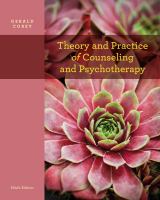Eugenia Fuenzalida, M.S., Ph.D.
Education
- D. in Psychology, December 2000, OU
- S. in Psychology, May 1997, OU
- A. in Psychology, May 1994, OU
Current Positions
- Associate Director, Cognitive Science Research Center, OU, Norman, 2015-present
- Associate Professor with Tenure, Department of Psychology, OU, Norman, 2007-present
- Faculty, Cellular & Behavioral Neurobiology, OU Norman, 2016-present
- Fellow, Center for Intelligence and National Security, OUHSC, 2016-present
- Advanced Programs professor, 2010-present
- Chairperson, Citizen’s Advisory Council, Norman Public Schools
Frequently Taught Advanced Programs Courses
- Foundations (HR)
- Personality Styles (CLS)
- Personality and Personality Disorders (HR)
- Staffing, Selection, and Compensation (ODYN)
Major Areas of Teaching and Research Interest
- Personality and Individual Differences
- Adaptation & Resilience
- Biologically-based traits
- Extraversion
- Neuroticism/Anxiety/Stress
- Human Factors
- Workload History & Transitions
Representative Publications and Presentations
Vincent, A., Roebuck-Spencer, T., Fuenzalida, L. E., & Gilliland, K. (2017). Test-retest reliability and practice effects for the ANAM General Neuropsychology Screening battery. The Clinical Neuropsychologist.
Vincent, A., Roebuck-Spencer, T., Fuenzalida, L. E., Block, C., Scott, J., Kane, R. (2017). Validation of ANAM for cognitive screening in a mixed clinical sample. Applied Neuropsychology: Adult.
Vincent, A. S., Bailey, C.M., Cowan, C., Cox-Fuenzalida, L.E., Dyche, J., Gorgens, K., Krawcyzk, D., Young, L. (2016). Normative Data for Evaluating Mild Traumatic Brain Injury with a Handheld Neurocognitive Assessment Tool. Applied Neuropsychology: Adult.
Freeman, E. K., Cox-Fuenzalida, L. E., & Stoltenberg, I. (2011). Extraversion and arousalprocrastination: Waiting for the kicks. Current Psychology, 30(4), 355-374.
Gries, P. H., Prewitt-Freilino, J. L., Cox-Fuenzalida, L. E., & Zhang, Q. (2009). Contentious histories and the perception of threat: China, the United States, and the Korean War—An experimental analysis. Journal of East Asian Studies, 9, 433-465.
Hauck, E., Anderson Snyder, L., & Cox-Fuenzalida, L. E. (2008). Workload variability and social support: Effects on stress and performance. Current Psychology, 27(2), 112-125.
Cox-Fuenzalida, L. E. (2007). Effect of workload history on task performance. Human Factors 49 (2), 277- 292.
Cox-Fuenzalida, L. E., Angie, A., Holloway, S., & Sohl, L. (2006). Extraversion and task performance: A fresh look through the workload history lens. Journal of Research in Personality, 40, 432-439.
Cox-Fuenzalida, L. E., Beeler, C., & Sohl, L. (2006). Effects of workload history on performance: A direct comparison between increases and decreases in workload. Current Psychology, 25(1), 8-14.
Schell, K.L. & Cox-Fuenzalida, L.E. (2006). Applying Resource Management Training to pharmacy practice. In K.L. Schell (Ed.), Enhancing performance and patient safety series, Module 9. Published electronically at http://www.pharmsafety.org/.
Swickert, R. J., & Cox-Fuenzalida, L. E., & Gilliland, K. (2006). Brainstem auditory evoked responses in introverts and extraverts: A cross validation. Individual Differences Research, 4(14), 292-298.
Schell, K. L. & Cox-Fuenzalida, L. E. (2005). Neuroticism and quality control in health services: A laboratory simulation. Current Psychology 24 (4), 231-241.
Cox-Fuenzalida, L. E., & Angie, A. (2005). Effects of workload history on dual task performance. Current Psychology 24 (3),171-179.
Schell, K. L., & Cox-Fuenzalida, L. E. (2005). The role of human factors in pharmacy errors. In
A.F. Grasha, M., O'Neill, D. Brushwood, and K.L. Schell (Eds.), Enhancing performance and patient safety series, Module 7. Published electronically at http://www.pharmsafety.org/.
Cox-Fuenzalida, L. E., Swickert, R. J., & Hittner, J. B. (2004). Effect of neuroticism and workload history on performance. Personality and Individual Differences, 36, 447-456.
Swickert, R. J., Hittner, J. B., Kitos, N., & Cox-Fuenzalida, L. E.(2003). Direct or indirect, that is the question:A Re-evaluation of extraversion’s influence on self-esteem. Personality and Individual Differences, 36, 207-217.
Cox-Fuenzalida, L. E., Gilliland, K., & Swickert, R. J. (2001). Congruency of relationship between extraversion and the brainstem auditory evoked response based on the EPI and EPQ. Journal of Research in Personality, 35, 117-126.
Major Professional Affiliations
- Phi Beta Kappa
- American Psychological Association
- American Psychological Society
- Society for Industrial Organizational Psychology
- Society for Personality and Social Psychology
- Human Factors Society


